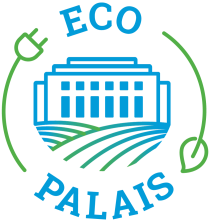
Breadcrumb
Reducing UN Geneva's environmental footprint
Each year, UN Geneva collects data on greenhouse gases, waste and water and reports the results as part of the UN-wide Greening the Blue initiative. The most recent statistics on UN Geneva’s environmental footprint are accessible on the Greening the Blue entity webpage of UN Geneva.
UN Geneva’s ambition is to accurately measure its environmental impacts and develop action plans to reduce them. Therefore, in addition to annual Greening the Blue reporting, UN Geneva is implementing an environmental management system, endorsed by senior management.
Underlining this commitment, UN Geneva signed the 2050Today Charter in December 2023. 2050Today brings together institutions of International Geneva, such as permanent missions, international organizations, academia, private and civil society entities to tackle climate change by measurably reducing GHG emissions.
To continue this positive trend, UN Geneva has also entered into a landmark agreement with Services Industriels de Genève (SIG) by signing the “Ambition Negawatt Vision” charter. Through this charter, UN Geneva has committed to several specific actions, such as upgrading lighting systems and expanding solar photovoltaic power generation capacity.
These collaborations also align with the ambitious objectives and targets set by the UN Secretariat’s Climate Action Plan and the 2030 Sustainable Development Agenda.
Despite the efforts to avoid and reduce greenhouse gases to a maximum, the nature of UN Geneva’s operations makes a complete avoidance of emissions impossible. To achieve “carbon neutrality”, UN Geneva compensates any remaining emissions through Certified Emission Reductions (CER) certificates from UNFCCC’s Adaptation Fund. These CERs help developing countries to adopt climate-friendly energy technologies. UN Geneva is thus “climate-neutral” since 2017.
Eco-Palais
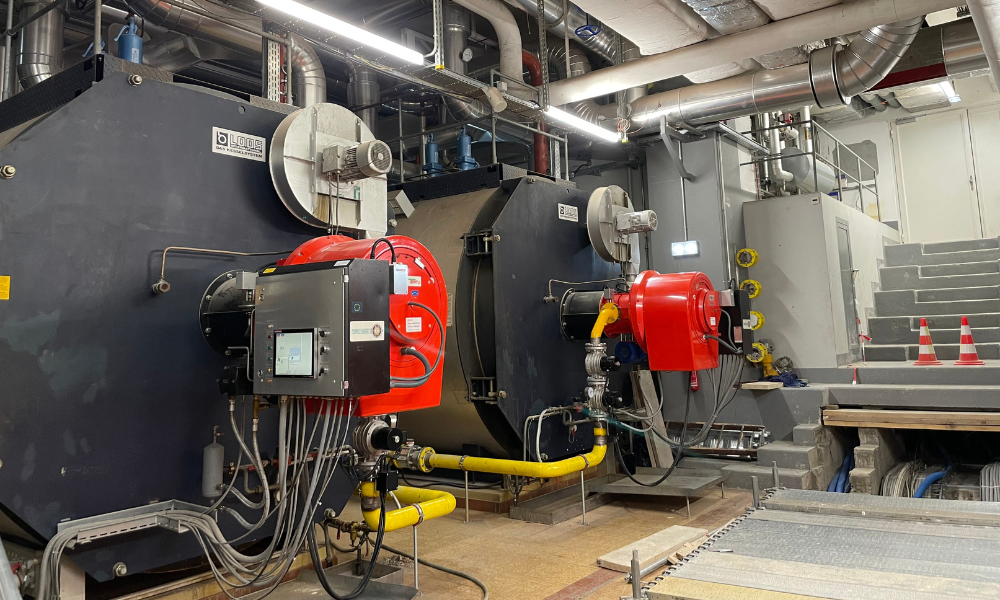
In the past, the Palais des Nations was heated with fuel oil. The heating system was upgraded to run on natural gas in 2008, reducing the Palais’ greenhouse gas emissions by 1’280 tCO2/yr.
In 2009, UN Geneva connected to “Genève-Lac-Nations” (GLN) to cool the premises using lake water. This reduced electricity consumption by 490MWh/yr and water consumption by 8’000 m3/yr. In the future, the new “Genilac” connection combined with the installation of 4 heat pumps will not only cool but also heat UN Geneva’s buildings. With this new technology, up to 80% of the heat requirement will come from a renewable source, leading to substantial reductions in greenhouse gas emissions.
For more information on UN Geneva’s work with SIG, click here.
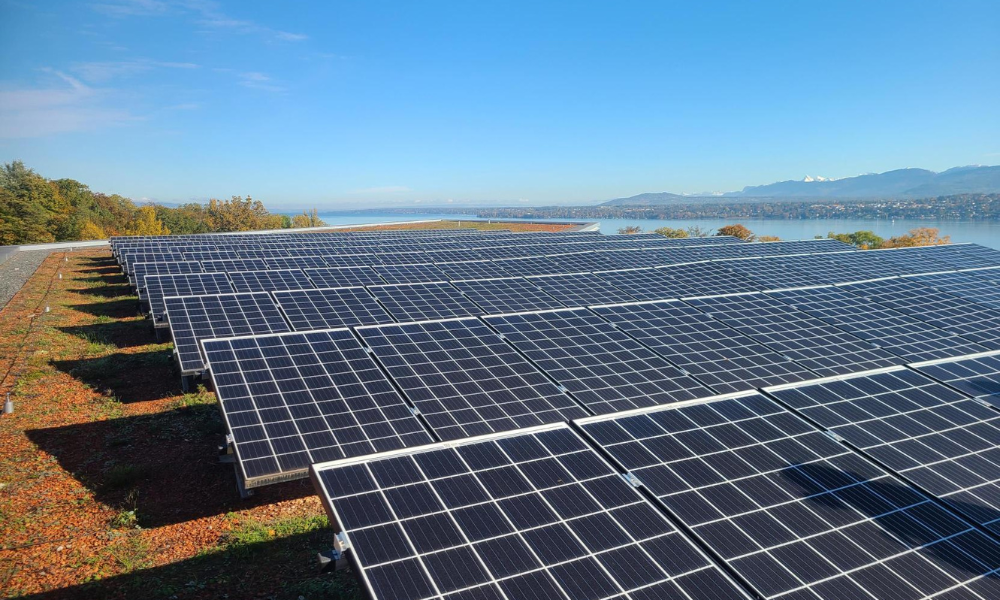
In 2014, thanks to the support of Switzerland, UN Geneva installed 3223 m2 of photovoltaic solar panels to produce electricity and hot water in buildings A, B, C, D, K and S. To help power the Palais, the new building H was also equipped with 460 m2 of solar panels that will be operational from 2024 onwards. In total, the Palais des Nations features 3683 m2 of solar panels.
Additionally, with the support of Green Cross International, 20 solar lamps have been installed in Ariana Park to ensure a minimum amount of lightning for security purposes at night.
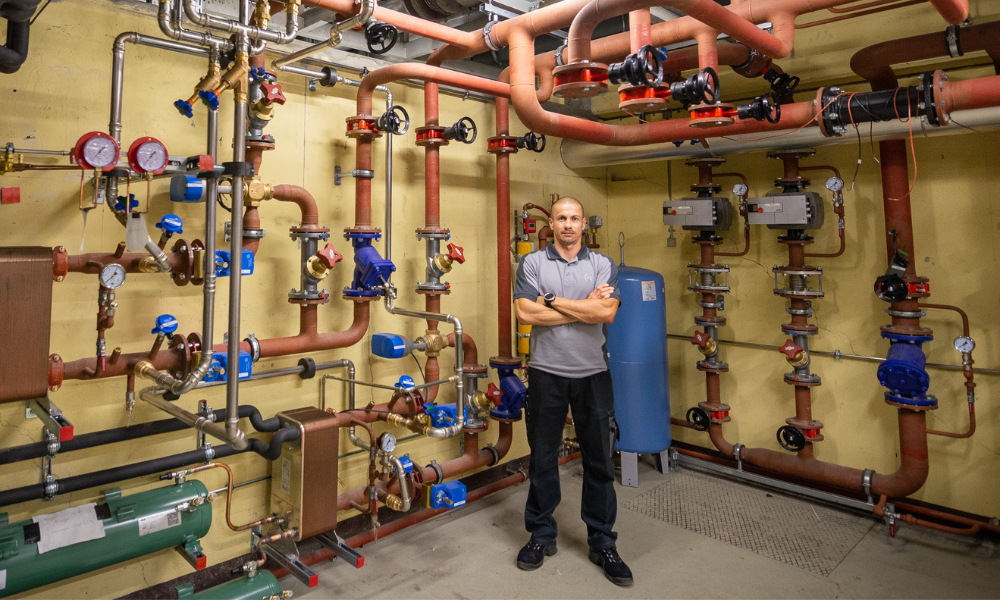
Between 2010 and 2022, UN Geneva reduced electricity used in the Palais by 9%. This was achieved through a combination of institutional measures, innovative partnerships and a transformation of work processes.
A donation from Switzerland allowed UN Geneva’s energy consumption to be reduced by:
- replacing most of the windows and blinds in office spaces
- installing photovoltaic panels (see above)
- replacing light fixtures in common spaces and office spaces
- automating the lighting control in common spaces
Additionally, UN Geneva’s Facilities Management Section has implemented several major energy saving projects that contribute to environmental sustainability at the Palais:
- a heat recovery system on the air conditioning of the data center
- a heat recovery system on the cafeteria refrigeration system
- the replacement of the refrigeration system of the cafeteria
In addition, the Facilities Management Section does finetuning and optimization of the technical installations after handover of the buildings from the SHP project.

With 1,305 individual trees, Ariana Park's tree heritage is one of the site's greatest natural assets. Herbaceous surfaces, which are also of great ecological importance, represent more than 54% of outdoor spaces. A flora and fauna inventory carried out in 2023 found several sectors with semi-dry mid-European grassland vegetation, a rare and protected environment which is favourable to many faunal species. There are more than 9.5 ha of grasslands on the site (41.3% of the herbaceous areas).
Maintenance practices are constantly evolving to support biodiversity in the park (installation of structures that support wildlife, refuge areas left during mowing, etc.). To combat insect pests in an environmentally friendly manner, UN Geneva has put an end to the use of synthetic pesticides in favour of biological controls. A differentiated management approach has been adopted, which is based on the principle of adapting management and maintenance according to the type of surface, its use, ecological potential and landscape interests.
Find out more about all that Ariana Park has to offer on this page
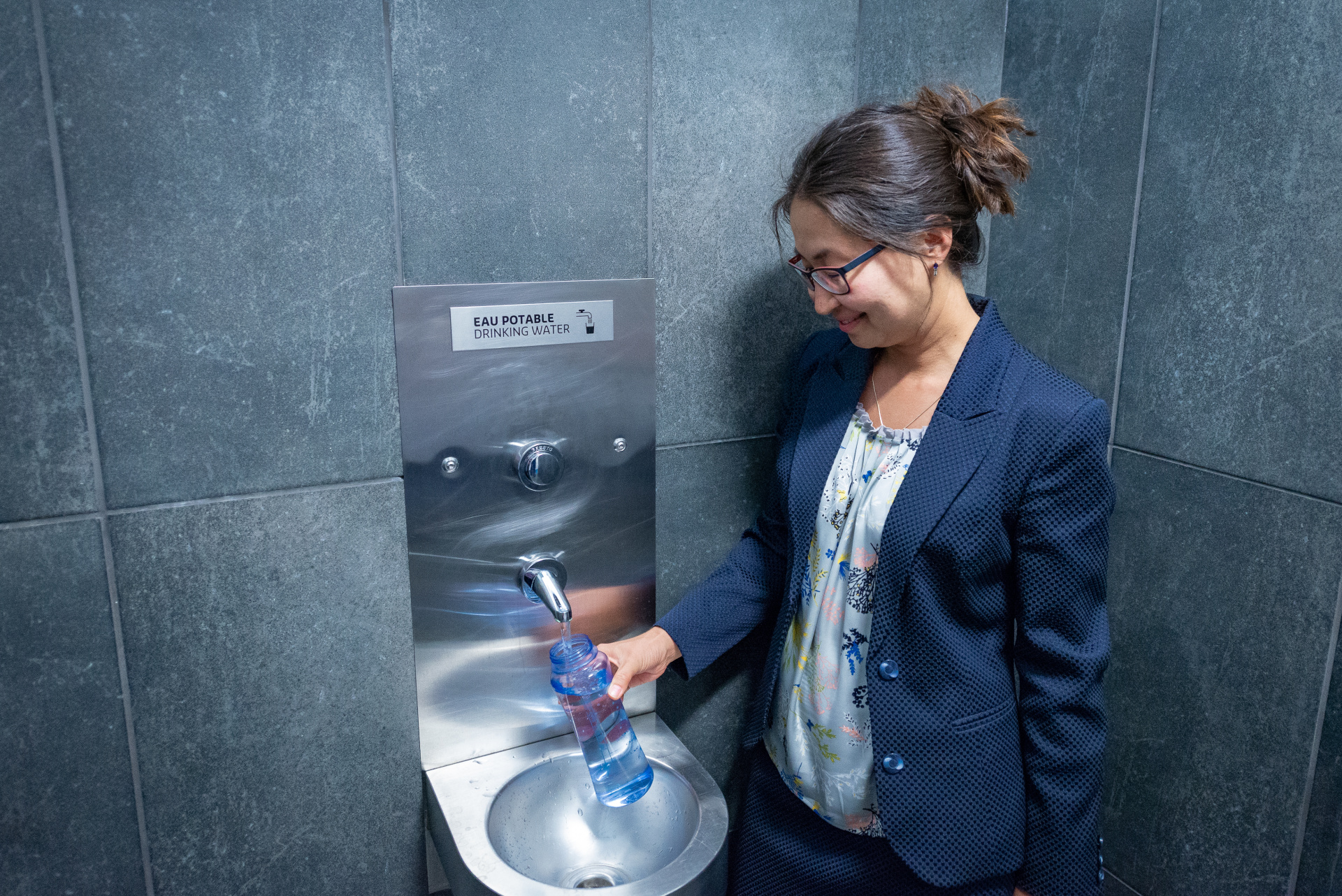
Since 2000, the Palais des Nations has reduced its water consumption by 66%. This was achieved by adapting the toilets and taps and gradually implementing modern and efficient automatic systems for the irrigation of Ariana Park.
In addition, efforts have been made to reduce water consumption in the park by converting some intensive lawns to natural meadows, favouring the cultivation of hardy perennials instead of annual flowers (which require water), and the establishment of organic mulching in the beds and at the base of the trees.
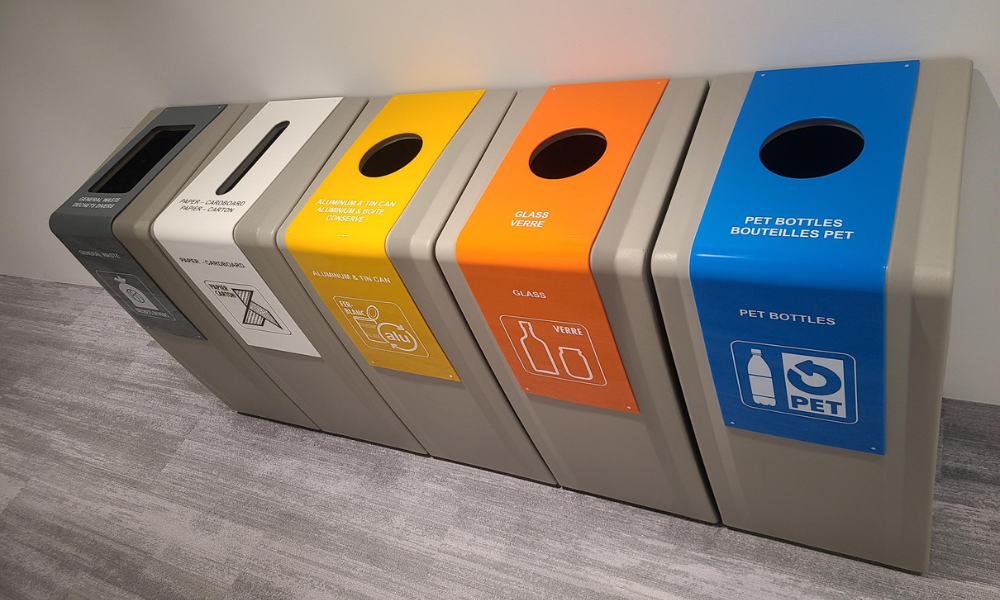
Efforts are also being made in waste management according to the principle of "reduce, reuse, recycle". Centralised recycling points have been set up throughout the Palais, and personal bins have been mostly removed. Paper towels in toilets have been replaced by hand dryers with a comparatively better environmental footprint.
Almost 100% of the park's organic waste is recycled on-site, reducing both costs and carbon footprint: compost and ramial fragmented wood are reused for their many benefits for soil life and plants.
Current efforts are aimed at further reducing food and packaging waste, for example by encouraging staff to bring their own coffee cups. In addition, reusable boxes are available to replace single-use containers for take-out food in the cafeteria.

